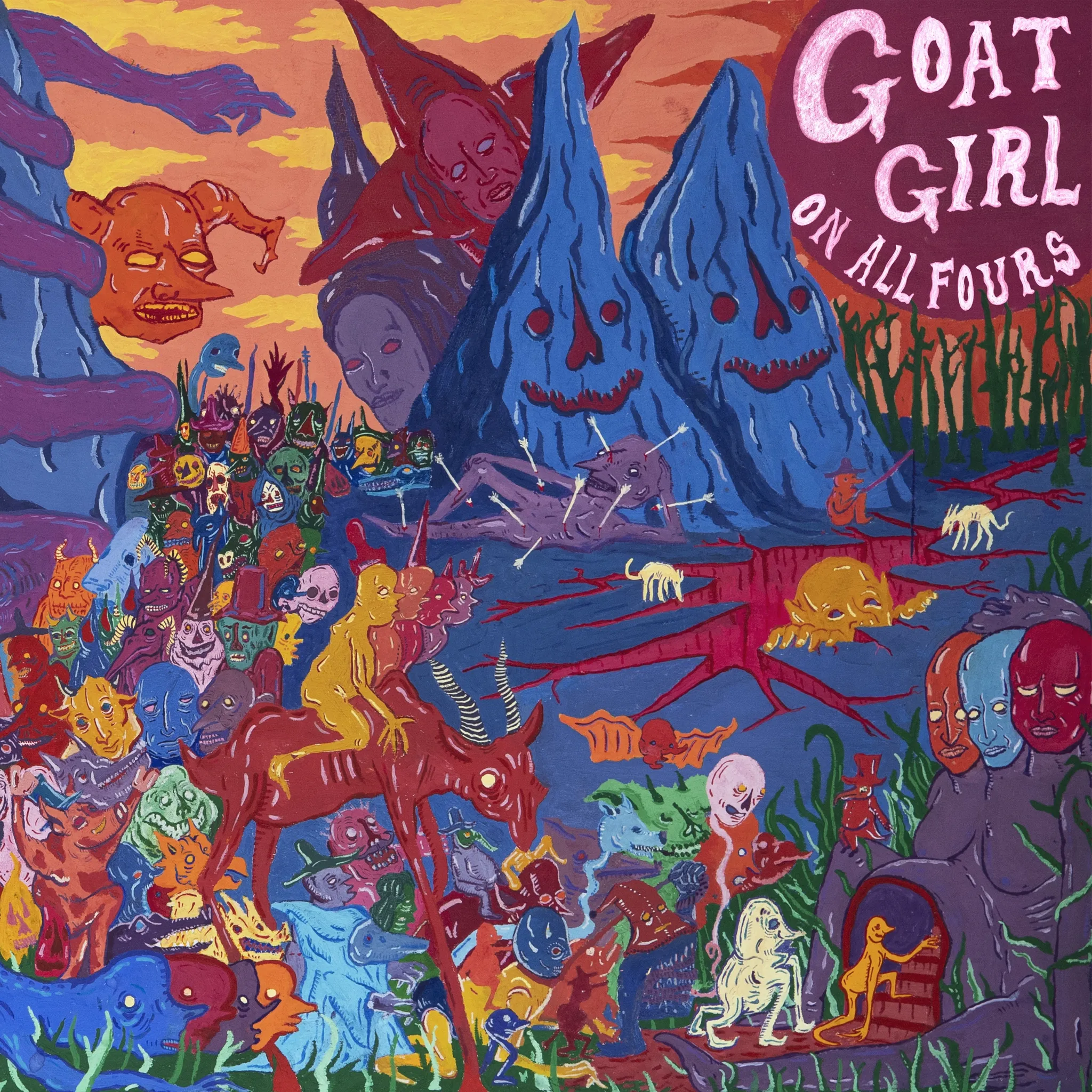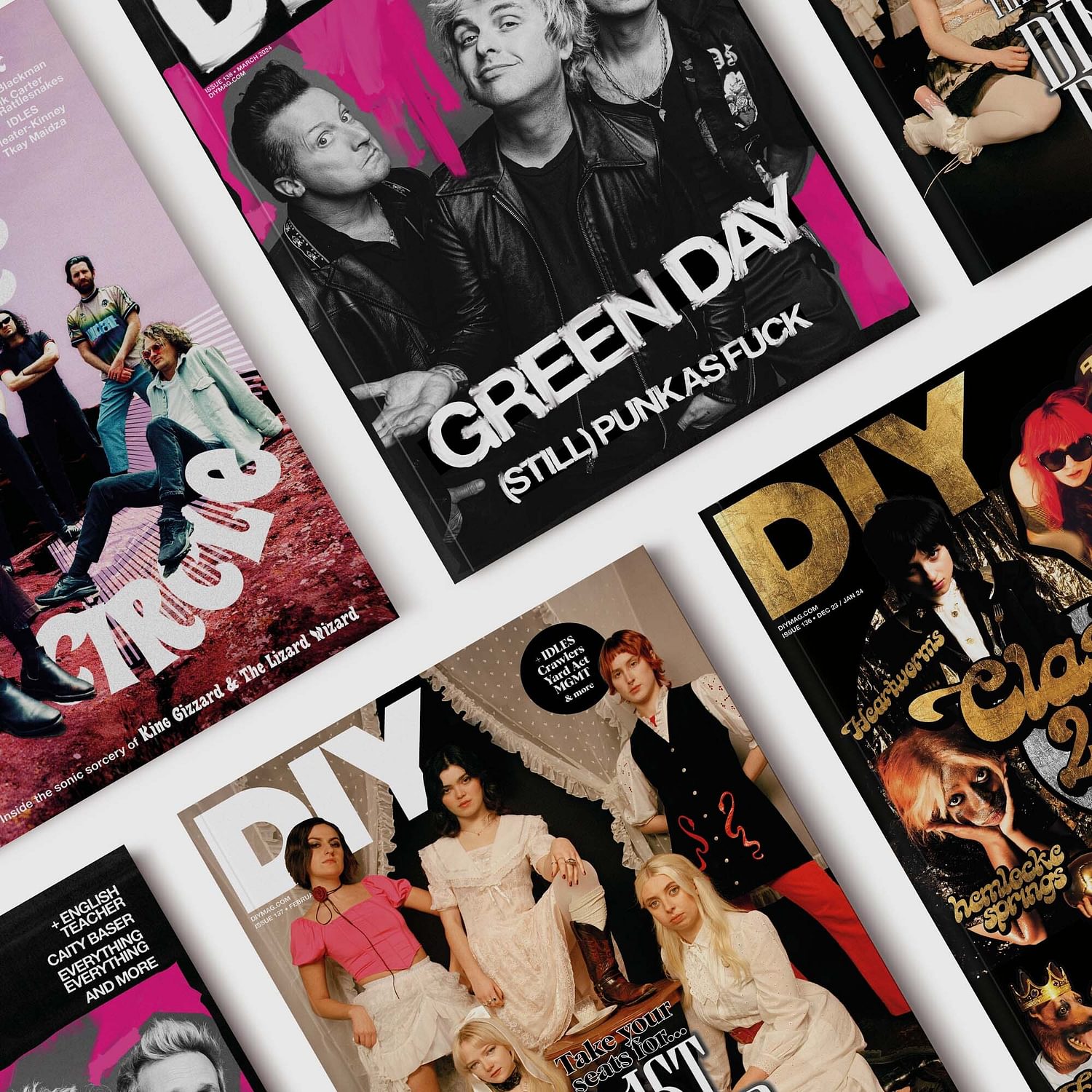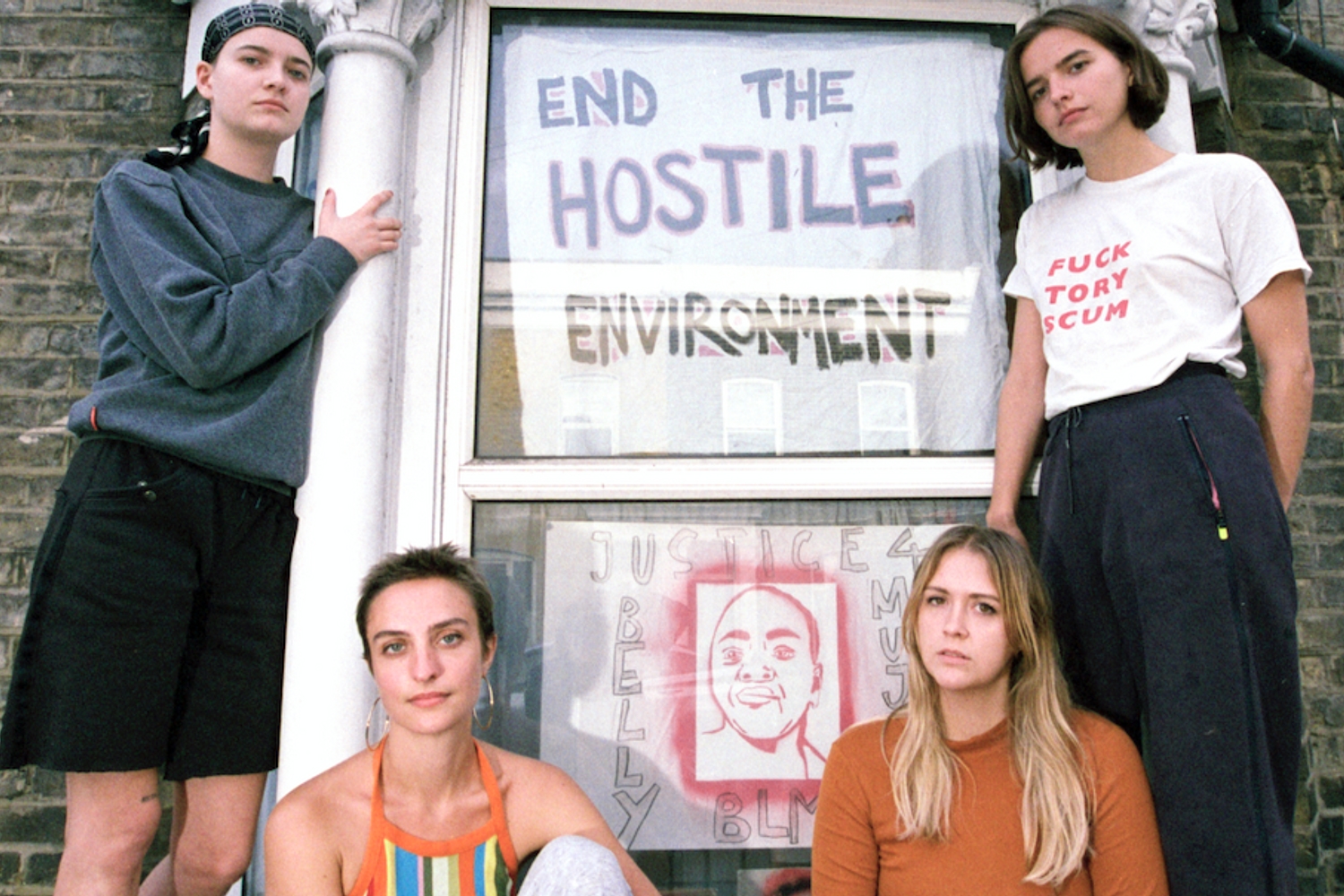
Interview In The Studio with… Goat Girl
The South London quartet’s self-titled opener made for one of 2018’s most adventurous debuts. Heading into their imminent second, Goat Girl are older, wiser and sticking even further to their guns.
Walking down a nondescript road in South East London, it doesn’t take a genius to work out which property likely houses members of Goat Girl. Adorned with homemade signs calling for trans rights, more widely-distributed PPE and justice for Congolese-born Belly Mujinga - who died of COVID-19 after allegedly being assaulted by a man claiming to carry the virus at Victoria Station - from the outside in, singer Lottie ‘Clottie Cream’ and drummer Rosy Bones’ current dwelling is a visual testament to the fact that the band practise what they preach.
It’s something the group - completed by guitarist Ellie ‘LED’ and new bassist Holly Hole - have been settling into during the creation of their imminent second LP, the follow-up to their critically-acclaimed 2018 self-titled debut. Inking a deal with Rough Trade somewhat fatefully on the day the Brexit vote rolled tragically in, and armed with a canon of early songs that wore their political leanings on their sleeves, from the off the band were put in a certain bracket.
“Because that’s how the industry works, you have to be boxed in and have an attainable quality that people can latch onto: young, political, South London, Windmill Brixton scene. All these bitesize points that people can digest,” Lottie begins. “At the beginning [of writing this album], I was like, how am I gonna continue this thread of people seeing me as this political person? But then I realised that everything you do in your daily lives is political and we’re very active people and we don’t have to prove that through our lyrics.
“Music doesn’t need to be political to be important but at the same time it always is in some way,” she nods. “But lyric-wise it was a struggle at the beginning because it was like, how am I gonna continue this idea of what people think of me?”
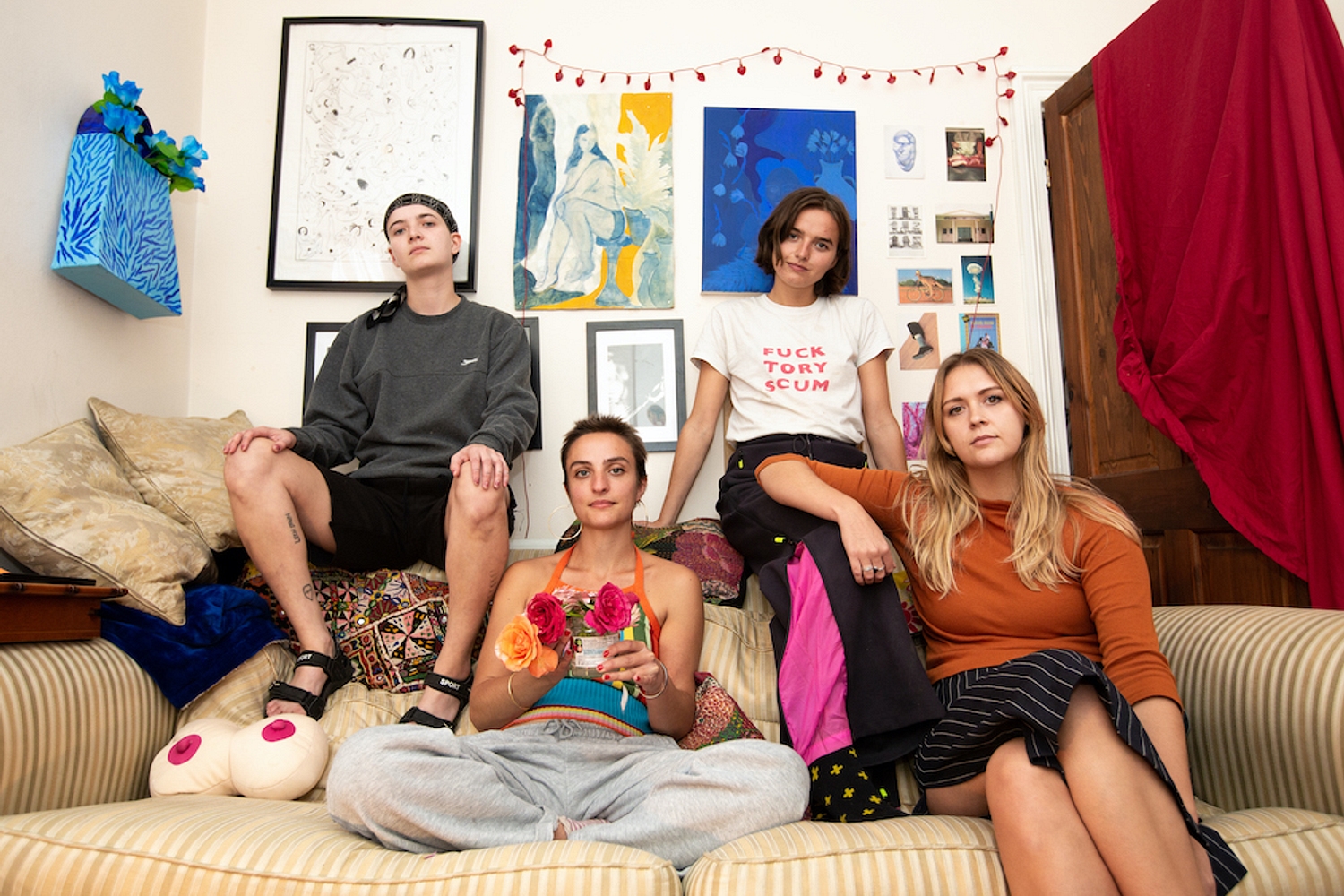
"The way you go about living your daily life is political."
— Clottie Cream
Signed at 18, and with most of their debut’s material written a couple of years before, Goat Girl’s second may only arrive a couple of years after their first on paper, but in reality it represents a huge period of growth for the quartet - both as a band and as people. Practically, that comes in the form of a line-up switch (original bassist Naima Jelly left the group amicably during their 2018 tour) and a change in writing style, with ‘Goat Girl’’s predominantly Lottie-helmed compositions swapped for a lengthy year-long period that saw the whole band come together to pen tracks in various locations in and around London.
“At the beginning we were trying to understand what we wanted from the second record, so we’d switch up instruments. It gives you a lot of freedom with what you’re doing; when you’re on an instrument that isn’t natural to you, you can just mess around without knowing all the details of how it works or what the outcome’s gonna be,” Lottie begins. “None of us are particularly technical, we play more by ear, but we can all hold a beat, all of us can play guitar and keys to an acceptable level, so we’d write and then teach it back to ourselves to record it,” elaborates Holly.
Moving between producer Dan Carey’s second Streatham studio (“We were there last summer and it was so hot and the air conditioning didn’t work. We were sleeping there and we went a bit crazy… Those are definitely some of the weirdest songs we have on the album…” notes Rosy) and East Grinstead dairy farm / wedding venue / recording studio The Yoghurt Rooms, the band began allowing the more experimental sound that had developed during their live shows to seep in. Recently-released first single ‘Sad Cowboy’ - a multi-faceted affair that begins with a heady synth motif before breaking into a groove-laden gallop - acts by way of introduction.
“It’s probably one of the more dancey ones, but there’s a lot of different textures on the record,” begins Ellie. “Anyone that’s heard it has said it’s quite different but you can tell it’s still Goat Girl,” nods Rosy. “There’s no fillers - and I’m bigging ourselves up, but on the first album we weren’t that confident and on this one we’re really pleased and proud and all of the songs are really good!”
Lyrically a track about “being sat in my room, looking outside and seeing this whole world around me”, ‘Sad Cowboy’ might not be an overt fist-shaking rant about The State of Things but, having spent their lockdown vocally and actively engaged with mutual aid groups and “a newfound collectivism that [they] hadn’t felt before,” Goat Girl are happy with the idea that they don’t have to box-tick to the masses to get their message across.
“The things you do and write about are inevitably gonna have a political agenda in some ways because you view the world differently to someone else and that in itself is political. The way you go about living your daily life is political. It doesn’t have to be through the music itself, but the music is a tool to create this safety net and safe space for people,” Lottie explains, as Rosy picks up: “[Making music] in itself is an act of rebellion because we’re taught to hate ourselves, so if you take the initiative to love yourself and be kind to others then that’s a pretty radical act.”
‘On All Fours’ is out 29th January via Rough Trade.
Read More
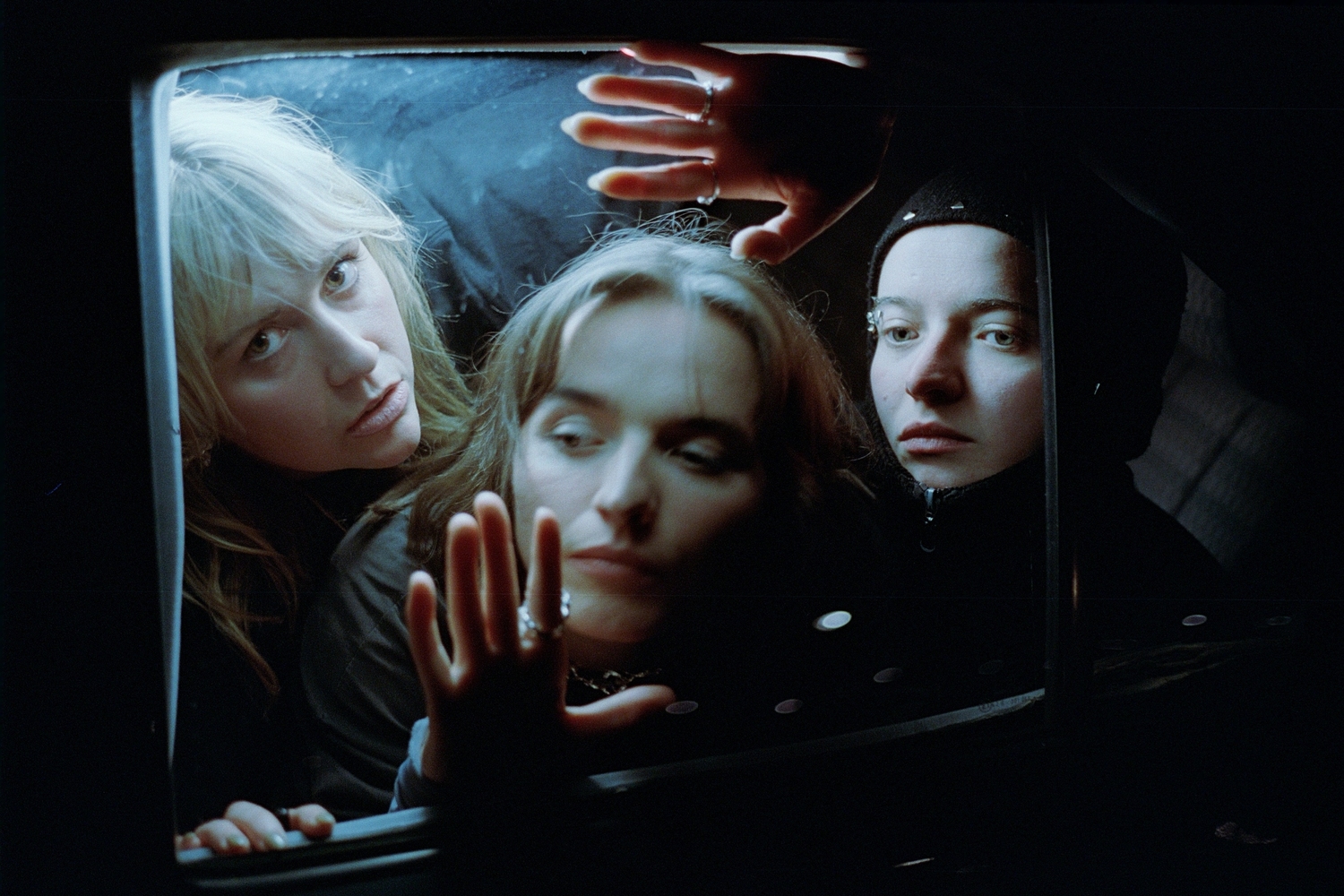
Goat Girl share video for second album preview ‘motorway’
Directed by Holly Blakey, it spotlights contemporary dancers dressed in archival Vivienne Westwood pieces.
11th April 2024, 3:00pm
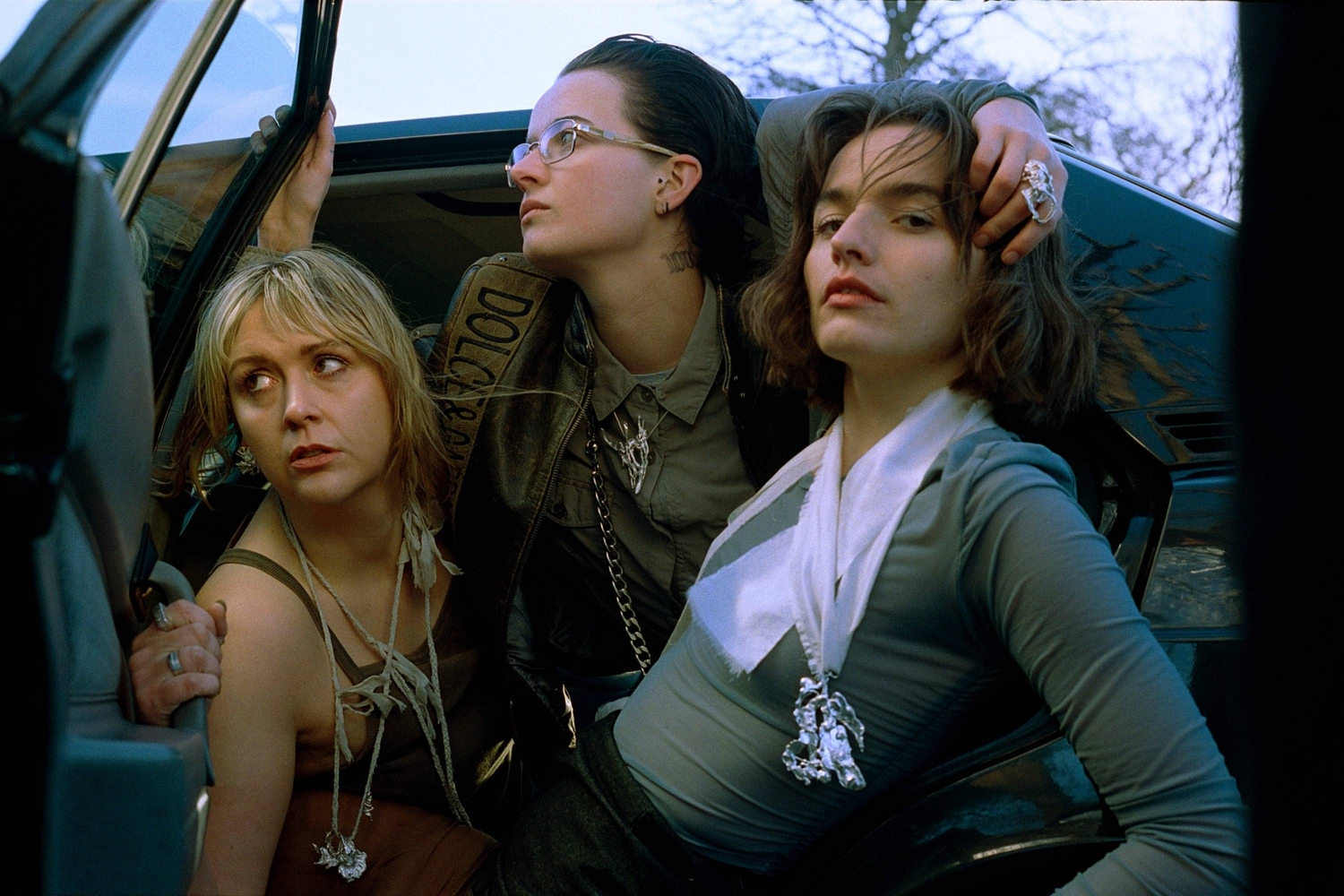
Goat Girl announce new album ‘Below The Waste’
The South London trio have also shared its gnarly lead single, 'ride around'.
14th February 2024, 11:33am
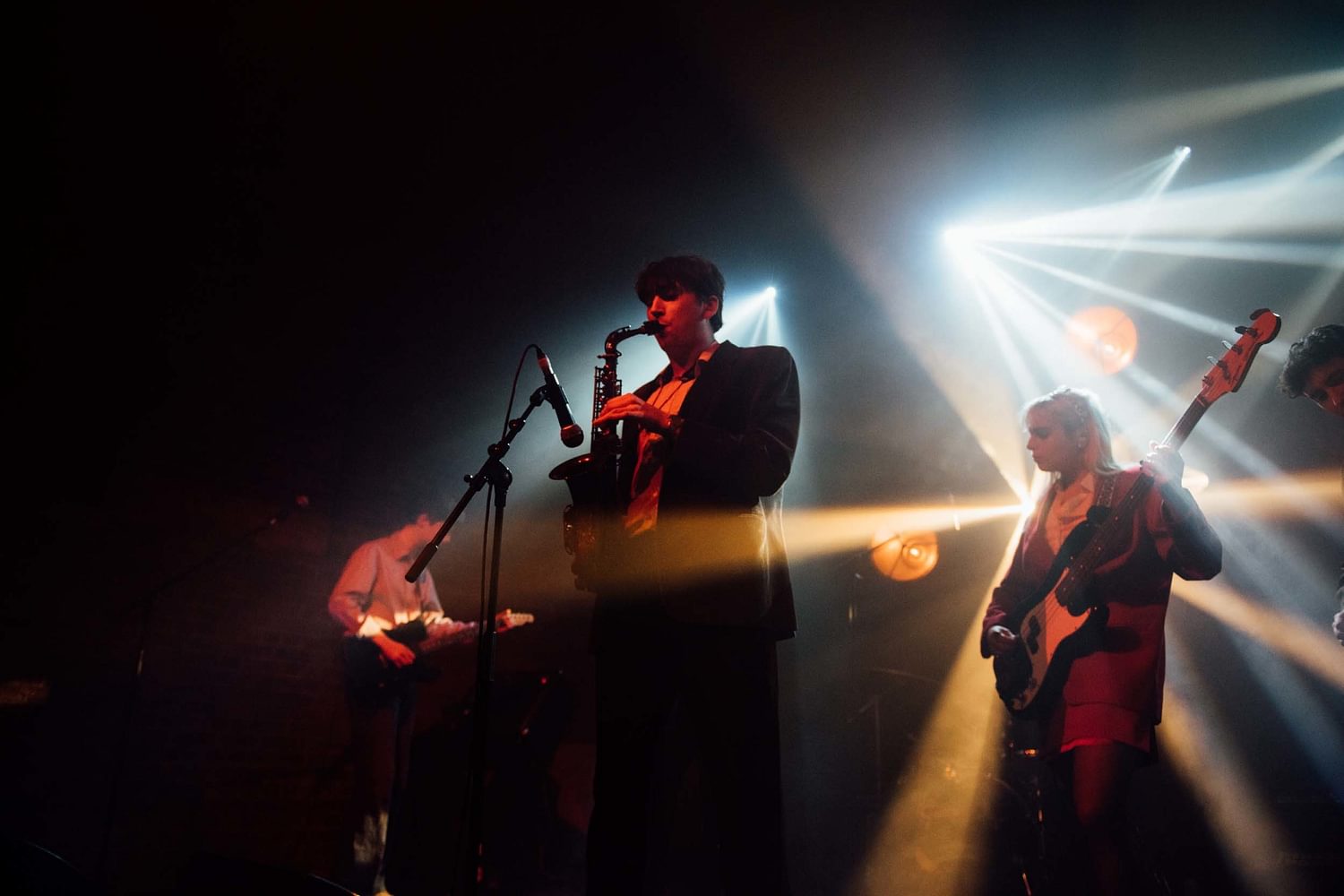
Black Country, New Road, Porridge Radio and more to play Climate Music Blowout
The day long event takes place at Hackney's EartH on Sunday.
13th October 2021, 12:00am
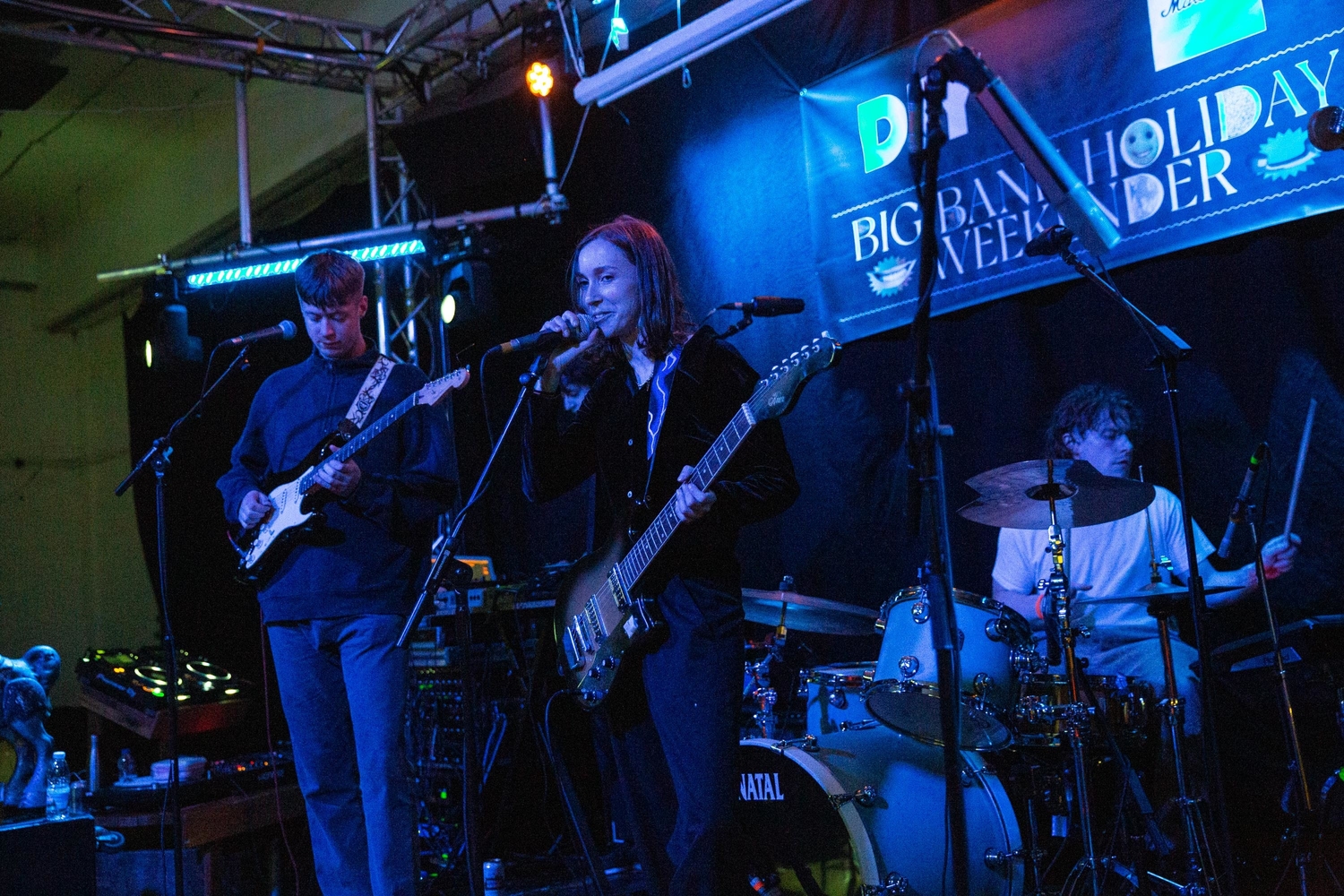
Sorry, Goat Girl, Connie Constance and more set Hackney ablaze at DIY’s Big Bank Holiday Weekender
Live music - oh how we’ve missed you.
6th March 2021, 12:00am
With Bob Vylan, St Vincent, girl in red, Lizzy McAlpine and more.
